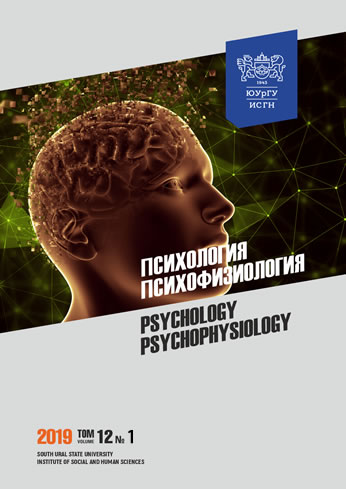AGGRESSION AND HOSTILITY IN OVERIAN CANCER PATIENTS AS THE CONSEQUENCE OF AFFECTIVE AND COGNITIVE DISORDERS (PART 1)
Keywords:
aggression, hostility, ovarian cancer, depression, anxiety, cognitive deficit, cognitive disorders, affective disorders, neuropsychology, neuropsychological assessment
Abstract
Ovarian cancer is associated with affective and cognitive disorders which may have negative impact on the quality of life (QOL) and the social functioning of this group of patients. The current study has been completed to evaluate hostility and aggression in ovarian cancer patients and their relationship with the affective disorders and cognitive deficit. Histologically confirmed ovarian cancer patients (N = 82) were assessed with regard to demographical and clinical parameters, QOL, psychological distress (anxiety and depression) and cognive functioning and their impact on the level of hostility and aggression. The following methods have been applied HADS, MADRS; EORTC QLQ-C30 / OV28, BACS, Bass-Darky questionnaire. Data analysis has been completed by means of ANOVA, correlation and linear regression analysis. The current study has demonstrated that ovarian patients have statistically significant elevation of implicit aggression aggression and feelings of guilt. While depression is significantly associated with hostile attitude, the increased anxiety impacts both hostility and aggression. Lineal regression analysis demonstrates that two cognitive domains (verbal memory and verbal fluency) are responsible for elevated aggressive behavior. Combination of affective disorders (depression and anxiety) and cognitive deficit may reduce the ability to control aggressive behavior and hostile reactions in ovarian cancer patients.Downloads
Download data is not yet available.
References
v
References on translit
v
Published
2019-07-12
How to Cite
Belozer, A. (2019). AGGRESSION AND HOSTILITY IN OVERIAN CANCER PATIENTS AS THE CONSEQUENCE OF AFFECTIVE AND COGNITIVE DISORDERS (PART 1). Psychology. Psychophysiology, 12(1), 71-82. https://doi.org/10.14529/psy190107
Issue
Section
Clinical (medical) psychology
Copyright (c) 2019 Psychology. Psychophysiology

This work is licensed under a Creative Commons Attribution-NonCommercial-NoDerivatives 4.0 International License.



